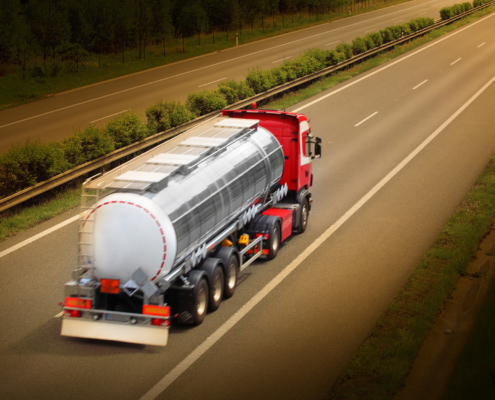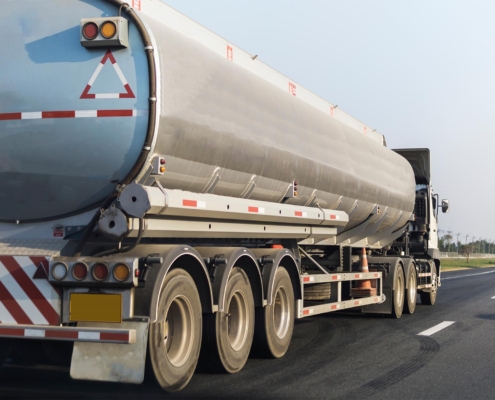
Understanding Fuel Tank Truck Regulations for Safety and Compliance
Transporting fuel comes with many potential hazards. Fuel tank truck regulations have been implemented to ensure the transportation process is safe and compliant. This article will explore everything related to truck regulations, from the importance of complying with these regulations to a guide on achieving compliance. We will also discuss the different types of tank truck safety equipment, compliance regulations, and why partnering with a reliable repair service is critical for compliance.
The Importance of Fuel Tank Truck Regulations
Fuel tank truck regulations play a critical role in ensuring the safety and efficiency of the transportation of hazardous materials such as gasoline, diesel, and other fuels. These regulations ensure the proper design, construction, and maintenance of fuel systems, including gravity-fed systems, to minimize the risk of accidents and environmental contamination.
Do Hazmat Cargo Tank Trucks Also Have Regulations and Compliance Standards?
Absolutely, Hazmat cargo tank trucks are subject to stringent regulations and compliance standards to protect the public, the environment, and the drivers. These include requirements for the fuel tank, fuel lines, air vent, safety vent, rollover valve, and other fuel system parts. One area that is often scrutinized is the liquid capacity of fuel tanks to ensure they follow proper fuel regulations to reduce potential hazards.
Organizations like the California Air Resources Board (CARB) regularly assess and update regulatory requirements in response to technological advancements, industry practices, and environmental and safety concerns. Ensuring that motor vehicles, including fuel tank trucks, meet these standards is vital for public safety and the environment.
Different Types of Tank Truck Safety Equipment
To comply with regulations, several types of safety equipment must be installed and maintained to minimize risks.
Air Vents
An essential piece of equipment in any fuel system is the air vent. This component ensures that there is proper venting of air pressure both in and out of the fuel tank during fuel transfer. Inadequate venting can compromise the structural integrity of the fuel tank, potentially leading to leaks or catastrophic failures. Regulation-compliant air vents are crucial for drivers handling hazardous materials, as they help prevent accidents and spills.
Rollover Valves
A rollover valve is another important safety feature in fuel systems, ensuring that liquid fuel does not escape the fuel tank in the event of a vehicular rollover. By sealing the vent line during a rollover accident, this valve helps to minimize the risk of fuel spills and any subsequent fires or environmental damage.
Gravity-fed auxiliary fuel systems can benefit immensely from installing a rollover valve, improving overall safety. As a result, most regulations mandate the implementation of rollover valves in liquid fuel tanks.
Safety Vents
Safety vents, or pressure relief devices, are designed to release excess pressure inside the fuel tank in case of over-pressurization or extreme temperatures. As fuel regulations dictate, these vents must have specific pressure ratings to protect the tank truck and its surroundings effectively. Properly functioning safety vents are critical for preventing tank ruptures and avoiding accidents.
Selector Valves
For fuel tank trucks equipped with multiple fuel tanks, a selector valve is an essential piece of safety equipment. This valve allows the driver to switch between fuel tanks without the need to physically access the tanks themselves, reducing the risk of accidental fuel spills or other hazards. Selector valves can also be found in some gravity-fed systems to ensure fuel tank trucks’ efficiency and safe operation.
Understanding fuel tank truck regulations is important, but your fleet also needs to understand weight and measure inspections. Check out this article today.
A Guide to Fuel Tank Truck Regulations for Compliance
Safety Venting Systems
Proper installation and maintenance of safety vents as part of your fuel systems are essential in ensuring regulations are met and your fuel tank operates safely and efficiently. Ensure your safety vent complies with the requirements set forth by regulatory bodies, such as the Federal Motor Vehicle Safety Standards and Regulations (FMVSS), to avoid penalties and potential hazards.
Liquid Capacity and Vapor Space
Fuel tank truck regulations often specify a maximum allowable liquid capacity for fuel tanks. This limit varies depending on the type of fuel and tank size but is set to ensure sufficient vapor space to accommodate the expanding fuel and its vapors during transportation. The liquid capacity of fuel tanks is an essential factor to consider when designing and installing aftermarket fuel tanks.
To maintain compliance and reduce the risk of accidents, following fuel tank regulations regarding the maximum allowable liquid fuel tank capacity is vital. Proper measures, including monitoring changes in fuel temperatures and regular inspection of tanks for damage, should be enacted to maintain a safe amount of vapor space in your fuel storage systems.
Gravity-Fed Systems and Selector Valves
Proper installation and maintenance of a functioning selector valve are required in all gravity-fed systems to avoid potential dangers and ensure compliance with fuel regulations. Regular checks should be carried out to ensure that the selector valve is working correctly and that there are no leaks or other issues with the fuel lines and fuel system.
Inspection and Maintenance of Fuel Tanks and Systems
Fuel tank truck regulations call for proper inspection and maintenance of fuel tanks and fuel systems to prevent fuel spillage and other potential safety hazards. Some key areas to focus on during routine inspections include the safety venting system, selector valve, and fuel lines. Periodic checks for leaks, corrosion, and damage are essential to ensure your fuel systems’ safe and efficient operation.
Keep in mind that motor vehicles, including fuel tank trucks, are subject to state and federal regulations that require regular inspection and maintenance. Following regulations, including conducting regular inspections and proper system maintenance, will keep your vehicle safe and ensure your compliance with these regulations.
Partner With White Tank & Truck Repair to Comply With Fuel Tank Truck Regulations
At White Tank & Truck Repair, we understand the importance of compliance with fuel tank truck regulations. We are dedicated to helping you navigate these requirements to keep your fleet running smoothly and safely. Contact us today to learn more about our services and how we can help you comply with industry regulations.





